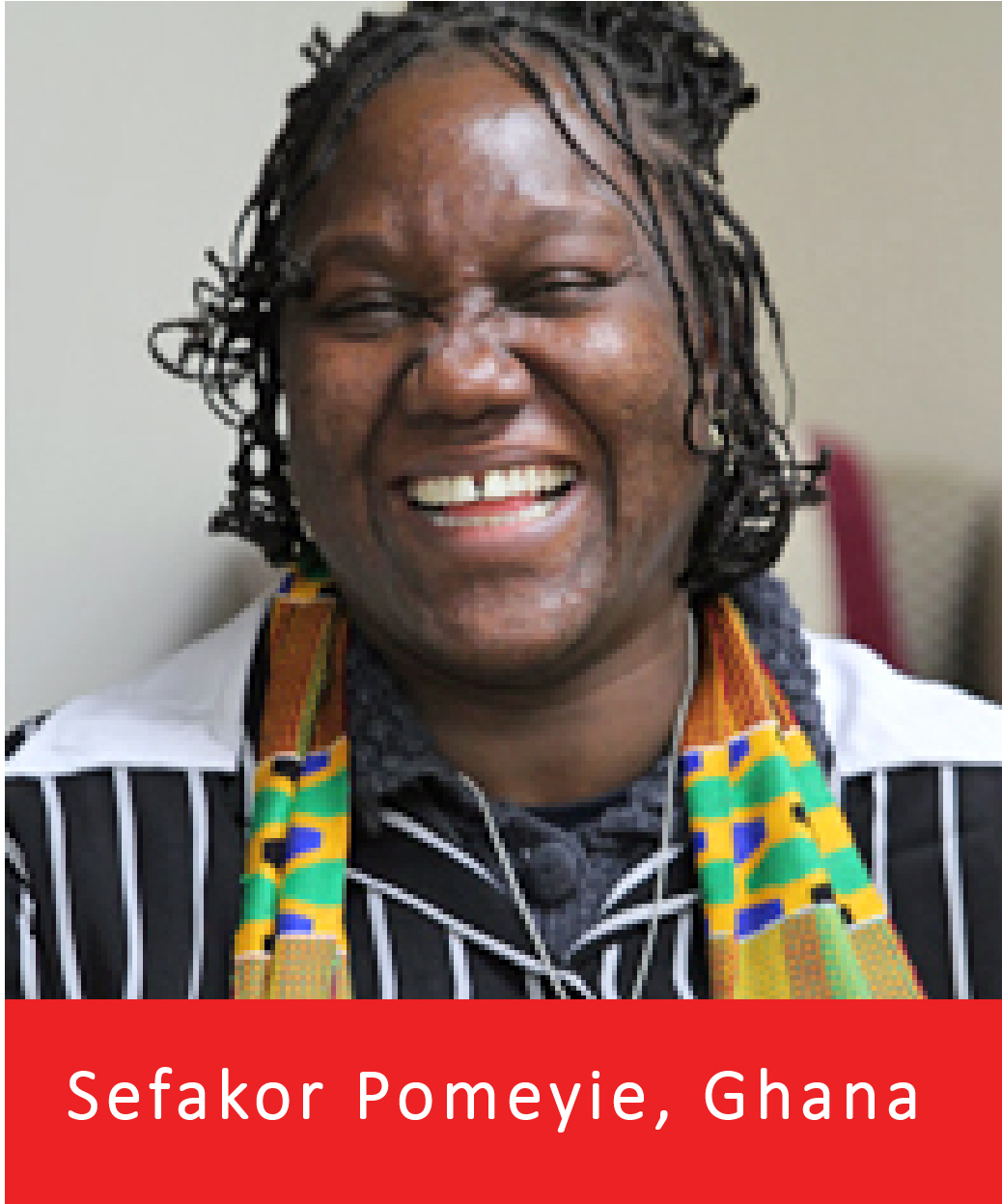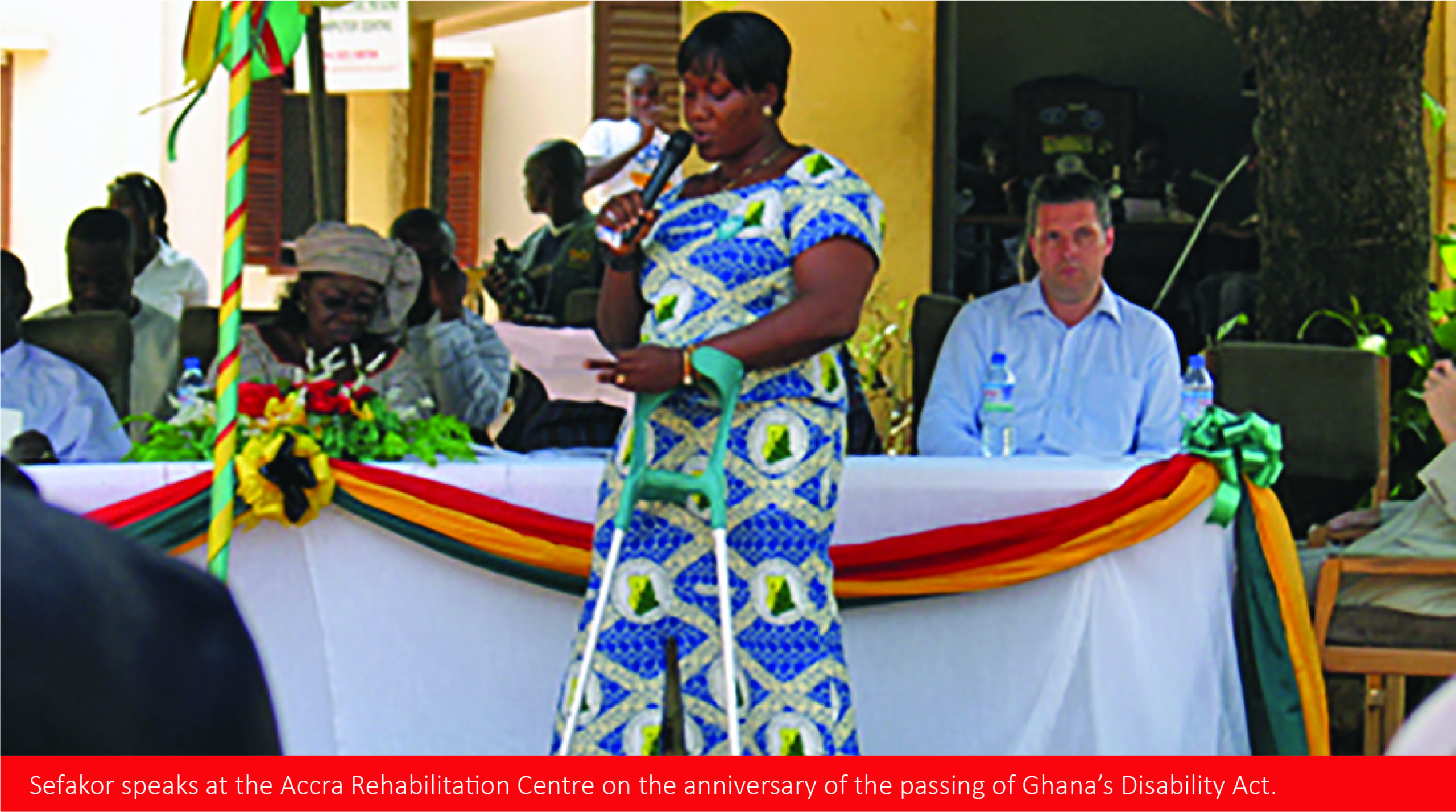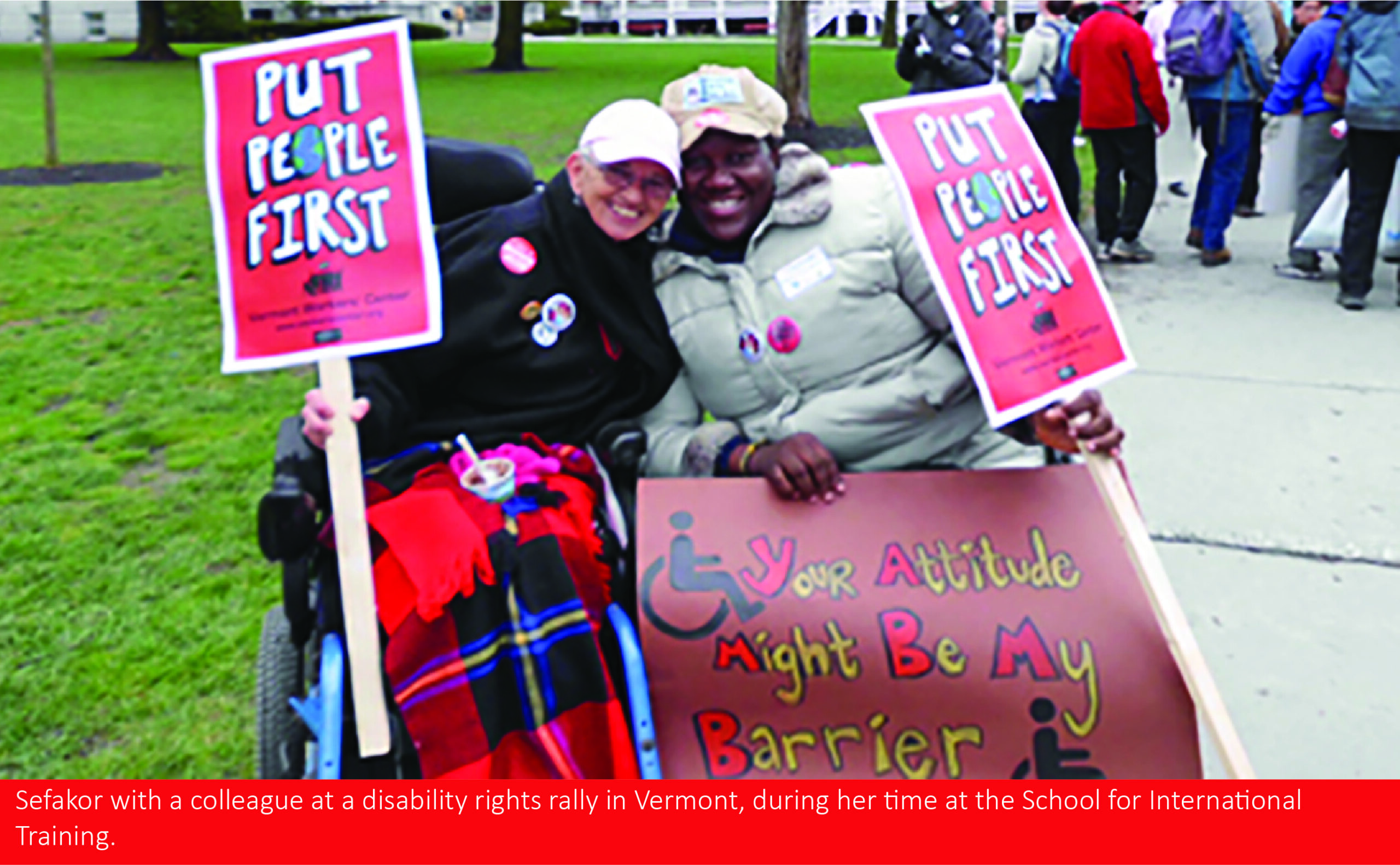Sefakor Pomeyie, Ghana

Master’s in Sustainable Development School for International Training (SIT), United States 2011-2013
Sefakor Komabu Pomeyie was stricken by polio when she was eight years old. Despite the challenges she faced growing up, Sefakor remained committed to continuing her education and received a Ford IFP Fellowship to study Sustainable Development at the School for International Training (SIT). Today, she is a leading disability rights advocate and policy analyst in her home country, focusing on ensuring school accessibility for students with disabilities. In fall 2016, she will further her studies and commitment to social justice by starting a PhD program in Educational Leadership and Policy Studies at the University of Vermont, in the U.S.
We spoke to Sefakor about growing up in Ghana as a person with a disability, her reasons for pursing the IFP Fellowship, and how the fellowship has impacted her life and career. The conversation has been edited and condensed for clarity.
Can you tell me a bit more about your background? What motivated you to apply for the IFP fellowship?
My disability happened when I was 8 years old. At the time the government was hoarding polio vaccines and I had received a vaccine that had expired. After I got polio, some of my family did not accept my disability, particularly my dad’s side. For many years I went through very difficult times undergoing so many medical treatments and physical therapy to help me walk again. Fortunately, my mom always believed in me and inspired me to go to school. She told me, “You can only survive through education. I know you can make it when you go to school for many years.”
I became more aggressive with advocacy work in college. In 2006, I fell down the stairs at my college and this caused me to speak out at my school about accessibility and how we suffer as people with disabilities. Inaccessibility is why most people with disabilities are not going to school. I started doing advocacy work through the media and one day when I was speaking on a television talk show someone called in and told me about the Ford IFP Fellowship. I immediately visited the website and realized I could do this advocacy work very professionally. That day happened to be the last day to apply but I managed to get all my materials together in time!
What was your fellowship experience at SIT like?
I was really surprised because I thought everything would be accessible in the U.S. But when I got to SIT I realized everything was not correct for me, especially the auditorium where we had all the big programs. There was absolutely no access for me. SIT is well-known for diversity, multiculturalism, and everything about social change, so I started talking with people about how they felt about my inaccessibility on campus and how I missed out on programs because of this. I did some research on campus with friends and professors and we came up with some policies to fix the accessibility issues. I had a big program-wide event called “Let’s Discuss the Taboo Topic, Which Is Disability,” and I opened it to the whole school to be a disability forum. I was the first person to come to the school in a wheelchair and I’m still helping SIT to be more inclusive as the African representative on SIT’s Global Advisory Board.
Can you tell me a little more about the work you’re doing now?
I won a $10,000 scholarship from SIT, which gave me the financial support to start my organization, Enlightening and Empowering People with Disabilities in Africa. Our focus is mainly to ensure that disability policy in Ghana is being implemented, although we are still actually fighting for it. The disability policies should be part of implementation processes, especially in every school. I still work as the resource person for the Ghana Education Service. Now I am also working for an NGO called the WaWa Project. They are using my Master’s thesis on accessible school environments to make a selected school in Ghana very accessible for people with any disability.
And how do you think the IFP fellowship impacted you personally?
I gained a lot of useful personal experiences back in the U.S. I represented SIT at the 56thUN Convention on the Status of Women where I was part of an event on disability. I also did an internship at the Vermont Center for Independent Living and the Institute for Human Centered Design in Boston. Personally, I would say I’ve changed so many things, and they have grown. In my mind, a lot of critical analysis has taken place, a lot of reflective thinking, a lot of policy work has really gone through. I can talk about issues relating to people with disabilities very openly.

You’ve already accomplished so much. What made you want to pursue your PhD?
I ask myself this question always: “How do I make this really happen once and for all of posterity?” I’ve done policy analysis and advocacy. I’m a professional teacher. I’m working in the Ghana Education Service. But I don’t have control over policy implementation, which is still a huge issue in Ghana. I want to add value to myself so that I can make a great change, not only in my community here, but in Ghana as the whole.